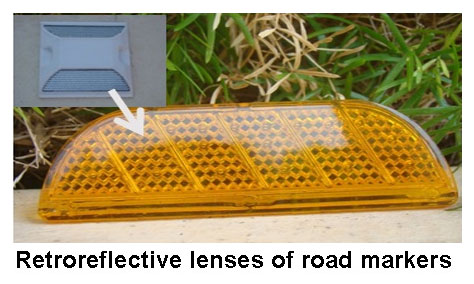 Scientists at the International Advanced Research Centre for Powder Metallurgy & New Materials (ARCI), an autonomous R&D Centre of Department of Science and Technology have developed scratch-resistant coatings for transparent plastic surfaces using sol-gel coating technology which can be used as pavement markers as well as canopies of aircraft.
Scientists at the International Advanced Research Centre for Powder Metallurgy & New Materials (ARCI), an autonomous R&D Centre of Department of Science and Technology have developed scratch-resistant coatings for transparent plastic surfaces using sol-gel coating technology which can be used as pavement markers as well as canopies of aircraft.An Indian patent filed by the ARCI team for the novel coatings has already been granted on 28-03-2018.
Sol-gel coating technology is considered economical as no exotic infrastructure is required for sol synthesis, coating, and curing procedures. Coatings can be cured with either thermal energy or radiation curing techniques using UV or IR light. The scratch-resistant coatings developed by ARCI are highly adherent to the substrate due to covalent bonding between the coating and substrate, exhibiting a rank of 5B and a pencil scratch hardness over 4H (pencil scratch hardness of bare polymer substrate – F) when evaluated using crosshatch cut and scratch hardness tests as per Standard Test Methods for Film adhesion and Hardness.
Plastics, a replacement for glass are economical, exhibit excellent transmittance to light, mechanical properties and lightweight with low weight-to-volume ratio, but suffer from low scratch and abrasion resistance and are vulnerable to ultraviolet light and certain solvents.
Protective coatings with the help of sol-gel technology can effectively eliminate such drawbacks of plastics. Sol-gel technology can synthesize nanocrystalline ceramic or its polymer hybrid materials in the form of powders or nanoparticulate dispersions called as sols which can be deposited as coatings. Sol-gel derived organic-inorganic hybrid nanocomposite coatings yield transparent coatings up to 20 micrometers thickness, which can be cured below glass transition temperatures of plastics.
Researchers at ARCI have found surface activation techniques such as plasma surface pre-treatment can further enhance the mechanical properties of sol coatings, especially in the case of polymethylmethacrylate (PMMA). These coatings developed by the ARCI team exhibited a transmittance of more than 89% and a maximum change in haze of 18% when tested for haze after Taber abrasion (Taber abrasion is a test to determine a plastic's resistance to abrasion).
The coatings on both polycarbonate (PC and PMMA were found to improve all mechanical properties without affecting any of the substrate bulk properties even after curing with thermal energy and radiation curing techniques using UV or IR light.
ARCI is further interacting with Indian industries for performance evaluation. The solgel coating applied on retroreflective lens assembled road studs was found to have higher coefficient of luminous intensity than commercial coated lenses in un-abraded conditions, as well as abraded condition, thereby showing its superior abrasion resistance. Pavement markers with sol-gel coated retroreflective lenses are presently undergoing field trials by the industry, and the preliminary results are quite promising.
“Functional coatings are being developed widely to improve the performance of materials in such applications as corrosion and fouling prevention, scratch and wear resistance, hardness, biocompatibility, reflection and transmission of light, gloss, self-repair, water- repellency, friction-reduction, adhesion, etc. ARCI scientists have used the materials and synthesis routes that make economical, robust and useful functional coatings for plastic surfaces,” said Prof Ashutosh Sharma, Secretary, DST.
For further details, Dr. R. Subasri (subasri[at]arci[dot]res[dot]in) can be contacted.






























